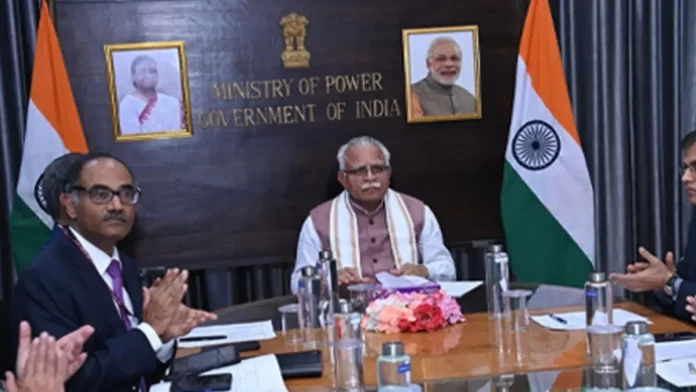New Delhi: In a landmark event for regional energy cooperation, Union Minister for Power Manohar Lal Khattar, inaugurated the first-ever trilateral power transaction from Nepal to Bangladesh via the Indian grid. The virtual ceremony was co-hosted by Md. Fouzul Kabir Khan, Adviser, Ministry of Power, Energy, and Mineral Resources, Government of Bangladesh, and Mr. Dipak Khadka, Minister of Energy, Water Resources, and Irrigation, Government of Nepal.
This historic initiative marks a new chapter in South Asia’s energy collaboration, with power flow enabled by a tripartite arrangement among the three nations. Nepal will export up to 40 MW of electricity to Bangladesh through Indian transmission infrastructure.
A Milestone in Sub-Regional Energy Cooperation
The genesis of this trilateral power transaction was rooted in discussions during former Nepalese Prime Minister Pushpa Kamal Dahal ‘Prachanda’s visit to India in June 2023. Both countries emphasized enhancing sub-regional energy cooperation as a key to fostering economic interlinkages and mutual benefits.
Subsequently, a tripartite power sales agreement was signed on October 3, 2024, in Kathmandu. The agreement involves NTPC Vidyut Vyapar Nigam (NVVN), Nepal Electricity Authority (NEA), and Bangladesh Power Development Board (BPDB).
Boosting Sub-Regional Connectivity
This initiative is expected to bolster sub-regional connectivity in the power sector, creating a framework for further energy exchanges. It underscores India’s pivotal role in fostering regional cooperation, leveraging its infrastructure to enable cross-border power trading.
Speaking on the occasion, Shri Manohar Lal highlighted the importance of collaboration in the energy sector, stating, “This initiative strengthens regional ties and demonstrates how shared resources can drive collective progress. India remains committed to facilitating such partnerships that benefit all stakeholders.”
Towards a Sustainable Energy Future
The successful implementation of this trilateral power flow sets a precedent for future collaborations in the region. With the growing need for sustainable energy solutions, such initiatives pave the way for leveraging renewable resources and optimizing regional energy markets.
This development is a step forward in realizing the vision of a connected and interdependent South Asia, where cooperation in critical sectors like energy can fuel shared prosperity.
